New, Detailed Molecular Roadmap Boosts Fight Against Endometrial Cancer
A study published Feb 13th in Cell provides an unprecedented look at the dozens of molecular steps that occur to bring about endometrial cancer, commonly known as uterine cancer. The study offers insights about how physicians might be able to better identify which patients will need aggressive treatment and which won’t, and offers clues about why a common treatment is not effective with some patients.

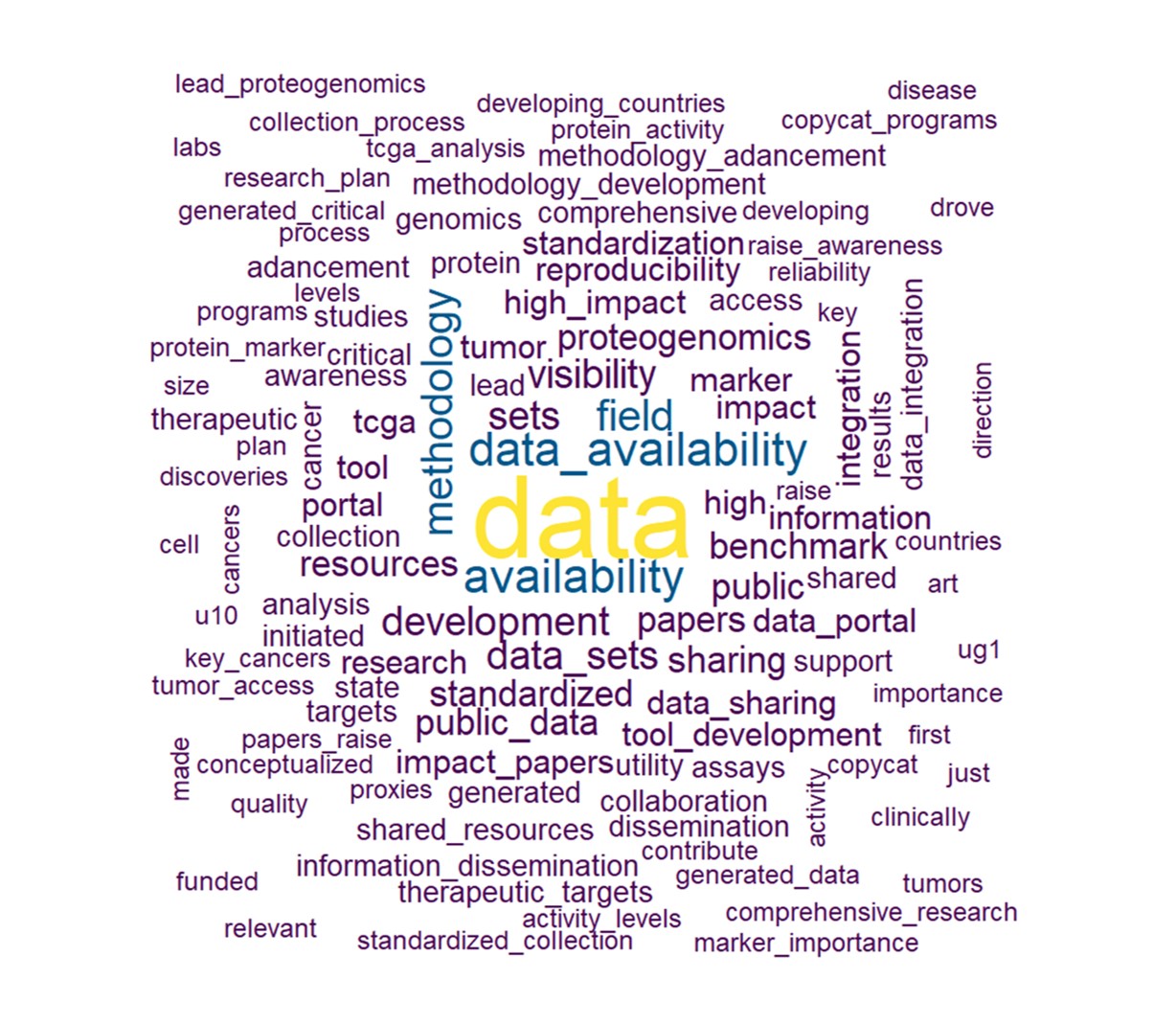 cares what you think about the Clinical Proteomic Tumor Analysis Consortium (CPTAC) program and all its offerings! Working with Clarivate Analytics to conduct a survey, we wanted to determine the effect of the CPTAC program on the proteogenomic research community. The evaluation provided the NCI with an objective, third-party assessment of CPTAC program implementation.
cares what you think about the Clinical Proteomic Tumor Analysis Consortium (CPTAC) program and all its offerings! Working with Clarivate Analytics to conduct a survey, we wanted to determine the effect of the CPTAC program on the proteogenomic research community. The evaluation provided the NCI with an objective, third-party assessment of CPTAC program implementation.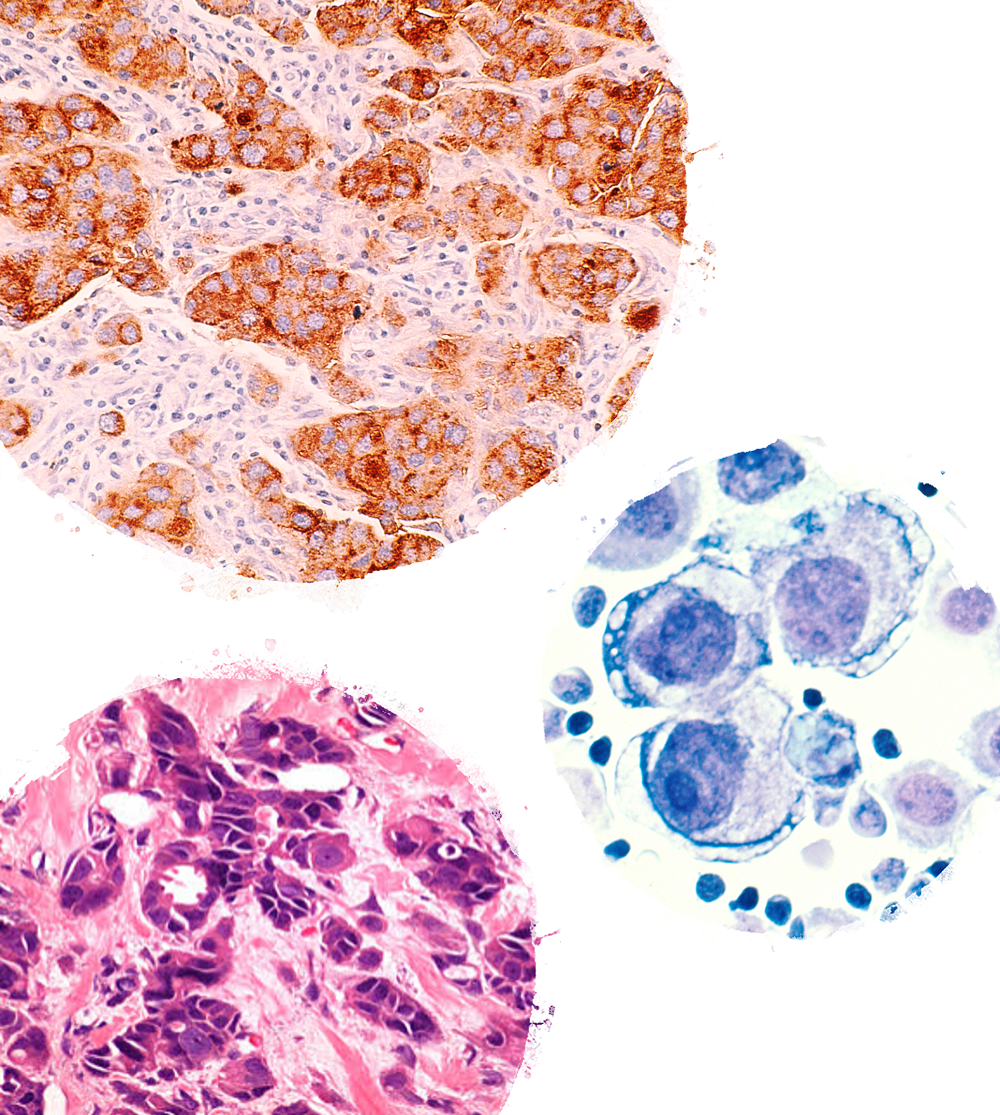 tumor diagnosis developed by Baylor College of Medicine and the Broad Institute of MIT and Harvard, researchers have been able to provide a more detailed and wider window into cancer biology, tumor type and the mechanisms of response and resistance to therapy than with conventional approaches.
tumor diagnosis developed by Baylor College of Medicine and the Broad Institute of MIT and Harvard, researchers have been able to provide a more detailed and wider window into cancer biology, tumor type and the mechanisms of response and resistance to therapy than with conventional approaches. is now available and includes data from the
is now available and includes data from the  Analysis Consortium (CPTAC), sponsored by the National Cancer Institute’s (NCI) Office of Cancer Clinical Proteomics Research (OCCPR) and managed by The Frederick National Laboratory for Cancer Research (FNLCR), is a national effort to accelerate the understanding of the molecular basis of cancer through the application of large-scale proteomics, genomics and proteogenomics.
Analysis Consortium (CPTAC), sponsored by the National Cancer Institute’s (NCI) Office of Cancer Clinical Proteomics Research (OCCPR) and managed by The Frederick National Laboratory for Cancer Research (FNLCR), is a national effort to accelerate the understanding of the molecular basis of cancer through the application of large-scale proteomics, genomics and proteogenomics. 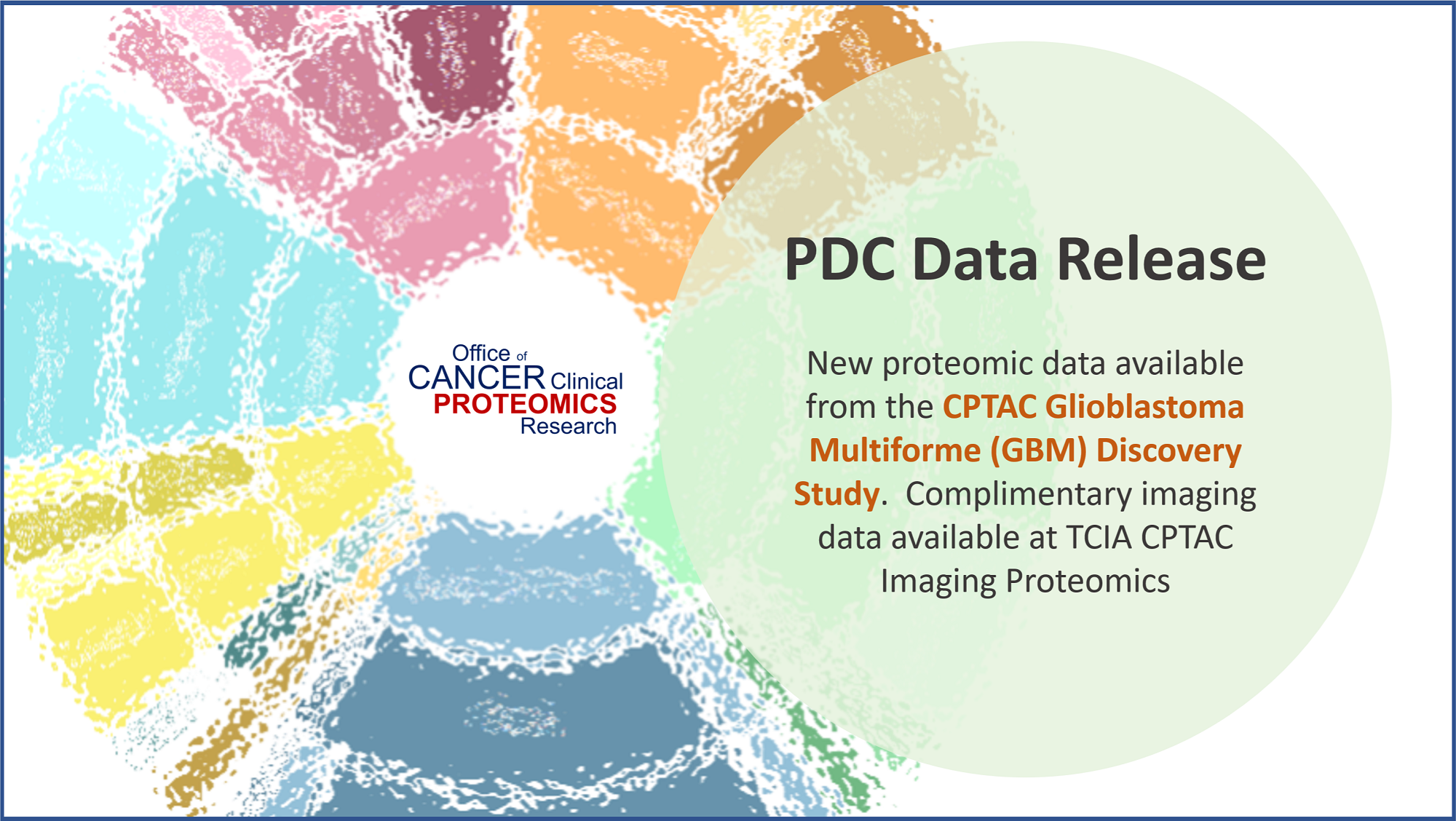 and phosphoproteomic data previously available only on thte CPTAC Data Portal is now available on the
and phosphoproteomic data previously available only on thte CPTAC Data Portal is now available on the 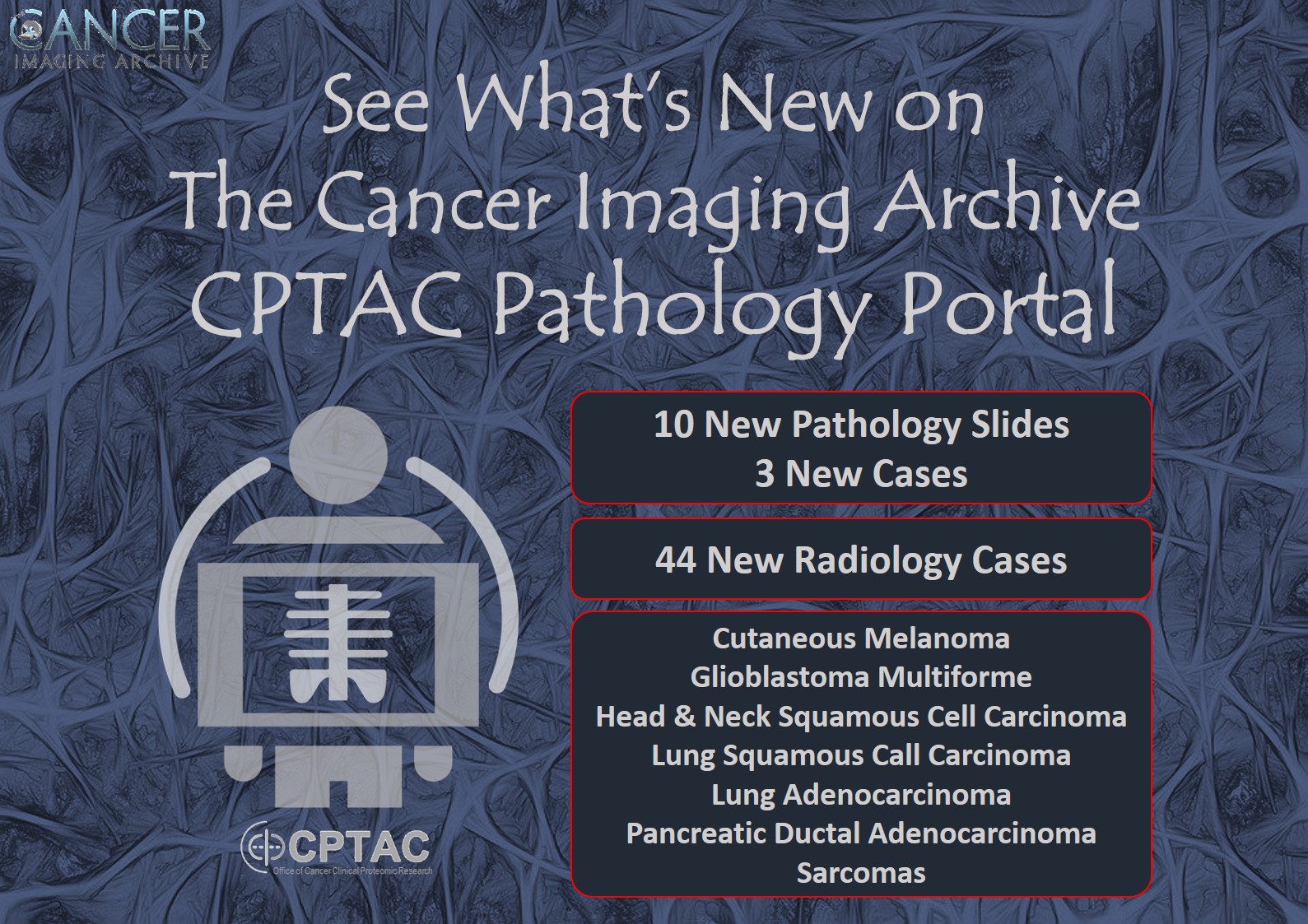 CPTAC radiology data with 44 new radiology cases! These cases span cutaneous melanoma, glioblastoma multiforme, head & neck squamous cell carcinoma, lung squamous cell carcinoma, lung adenocarcinoma, pancreatic ductal adenocarcinoma and sarcoma tumor tissue types. In addition, the TCIA monthly histopathology report lists the addition of 10 new pathology slides
CPTAC radiology data with 44 new radiology cases! These cases span cutaneous melanoma, glioblastoma multiforme, head & neck squamous cell carcinoma, lung squamous cell carcinoma, lung adenocarcinoma, pancreatic ductal adenocarcinoma and sarcoma tumor tissue types. In addition, the TCIA monthly histopathology report lists the addition of 10 new pathology slides 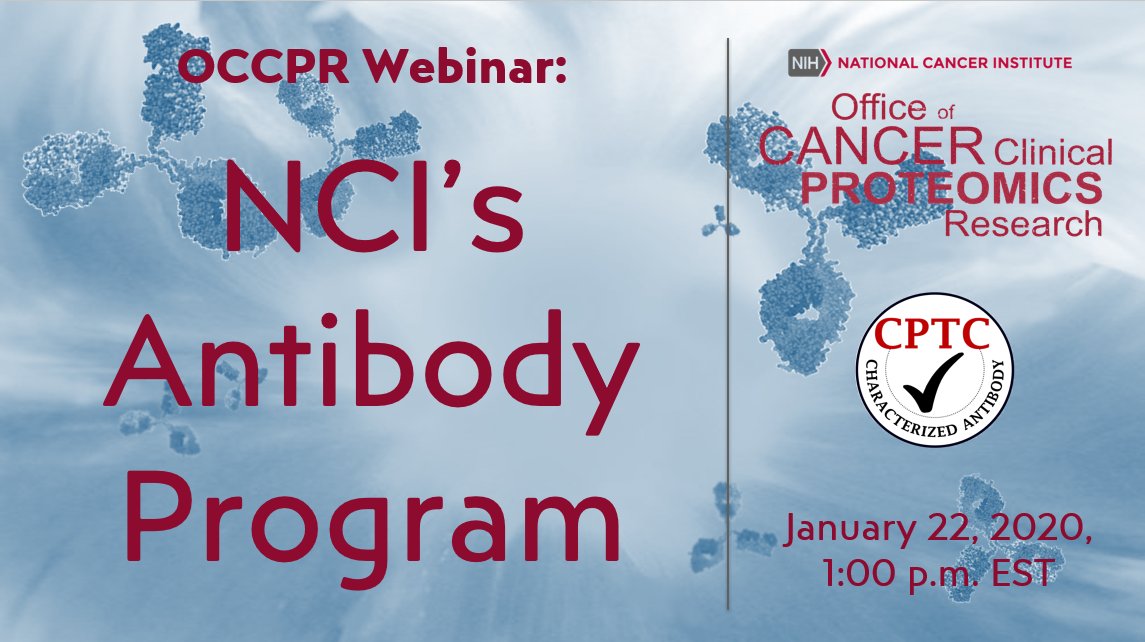 the biological sciences - put to work in many experiments to identify and isolate other molecules.
the biological sciences - put to work in many experiments to identify and isolate other molecules.